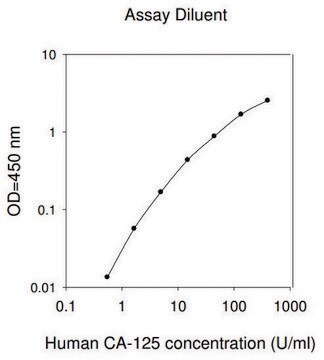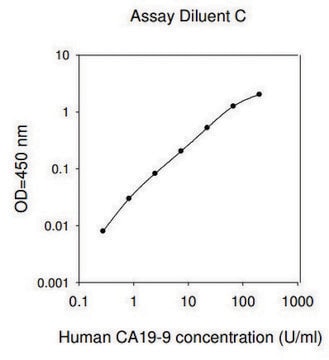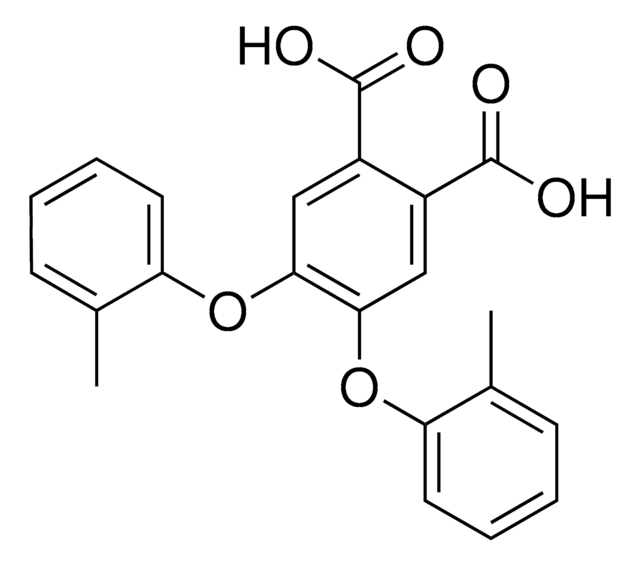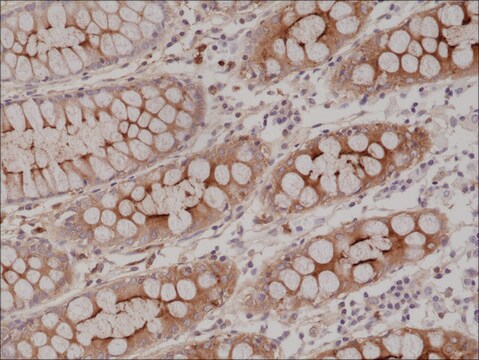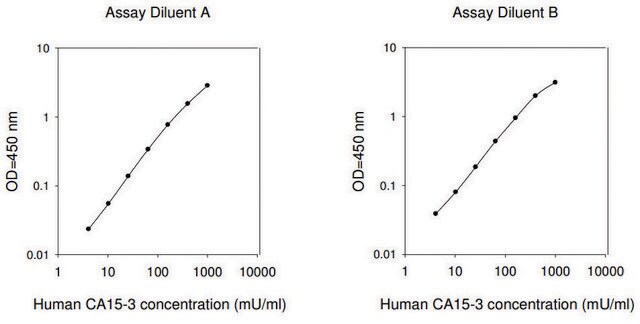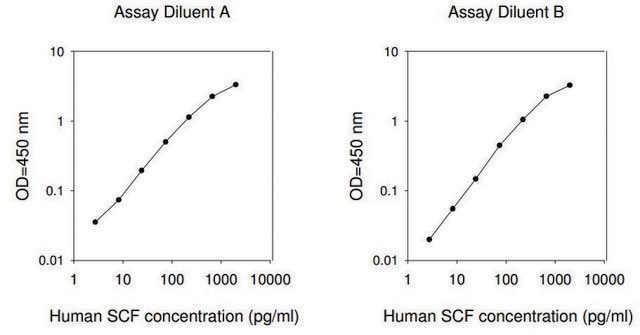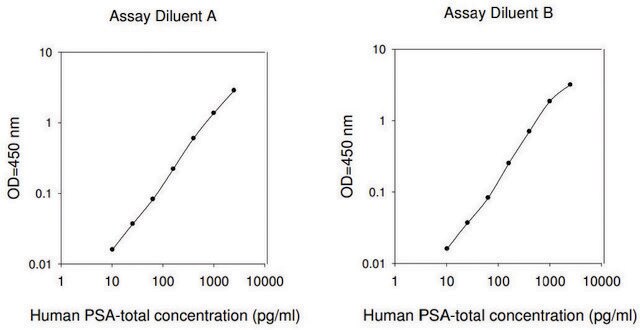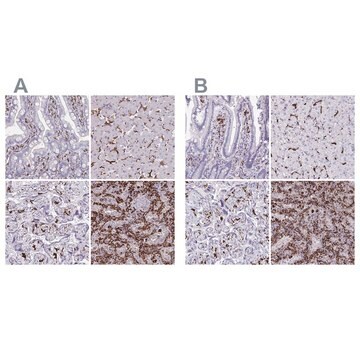RAB0411
Human CEA ELISA Kit
for serum, plasma, cell culture supernatant and urine
Sign Into View Organizational & Contract Pricing
All Photos(2)
About This Item
UNSPSC Code:
41116158
NACRES:
NA.32
Recommended Products
species reactivity
human
packaging
kit of 96 wells (12 strips x 8 wells)
technique(s)
ELISA: suitable
capture ELISA: suitable
input
sample type plasma
sample type urine
sample type serum
sample type cell culture supernatant(s)
assay range
inter-assay cv: <12%
intra-assay cv: <10%
sensitivity: 200 pg/mL
standard curve range: 0.343-250 ng/mL
detection method
colorimetric
shipped in
wet ice
storage temp.
−20°C
Gene Information
human ... PSG2(5670)
General description
The Human CEA (Carcinoembryonic Antigen) ELISA (Enzyme-Linked Immunosorbent Assay) kit is an in vitro enzyme-linked immunosorbent assay for the quantitative measurement of human CEA in serum, plasma, cell culture supernatants and urine.
Immunogen
Recombinant Human CEA
Application
Human CEA ELISA Kit has been used to compare the analytical results of paper-based analytical device (PAD)-based sensing platform with commercial enzyme linked immunosorbent asay (ELISA) kits for measuring target carcinoembryonic antigen (CEA) levels. It has also been used to comparatively study the limit of detection (LOD) of the quartz crystal microbalance (QCM) immunosensing method.
Other Notes
A sample Certificate of Analysis is available for this product.
Please type the word sample in the text box provided for lot number.
Please type the word sample in the text box provided for lot number.
Kit Components Also Available Separately
Product No.
Description
SDS
Signal Word
Warning
Hazard Statements
Precautionary Statements
Hazard Classifications
Met. Corr. 1
Storage Class Code
8A - Combustible corrosive hazardous materials
Choose from one of the most recent versions:
Already Own This Product?
Find documentation for the products that you have recently purchased in the Document Library.
Zhenli Qiu et al.
Analytical chemistry, 89(9), 5152-5160 (2017-04-06)
An all-in-one paper-based analytical device (PAD) was successfully developed for visual fluorescence detection of carcinoembryonic antigen (CEA) on CdTe/CdSe quantum dot (QD)-enzyme-impregnated paper by coupling with a bioresponsive controlled-release system from DNA-gated mesoporous silica nanocontainers (MSNs). The assay was carried
Melvin E Klegerman et al.
Journal of liposome research, 24(3), 216-222 (2014-03-07)
Thermodynamic analysis of ligand-target binding has been a useful tool for dissecting the nature of the binding mechanism and, therefore, potentially can provide valuable information regarding the utility of targeted formulations. Based on a consistent coupling of antibody-antigen binding and
Qirong Xiong et al.
Nature communications, 9(1), 1743-1743 (2018-05-03)
Microfluidic biochips hold great potential for liquid analysis in biomedical research and clinical diagnosis. However, the lack of integrated on-chip liquid mixing, bioseparation and signal transduction presents a major challenge in achieving rapid, ultrasensitive bioanalysis in simple microfluidic configurations. Here
Julie Kim et al.
Talanta, 129, 106-112 (2014-08-17)
Using the role of p-iodophenol in enzyme assay, enhanced 1,1'-oxalyldiimidazole chemiluminescent enzyme immunoassays (ODI-CLEIAs) were developed to consecutively quantify trace levels of triple tumor markers, such as alpha fetoprotein (AFP), carcinoembryonic antigen (CEA), and prostate specific antigen (PSA) in a
Our team of scientists has experience in all areas of research including Life Science, Material Science, Chemical Synthesis, Chromatography, Analytical and many others.
Contact Technical Service
